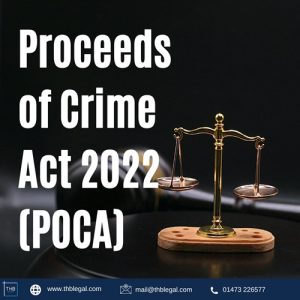Inheritance tax is changing in 2026
What farming families and business owners need to know If you own a farm,...- 11 February 2026
Posted: 11 January 2024
If you’re being investigated by the police or having money/assets seized by authorities, it is important that you are properly advised and represented. Read this recent case of a seizure of monies under the Proceeds of Crime Act 2002(“POCA”) to understand why.
On 13 January 2023, HMRC obtained authority to conduct a search of the business premises of the aforementioned business under Section 289 of the Proceeds of Crime Act 2002 Upon first attendance, an undisclosed safe was located in the kitchen area. A safe to which the claimant stated he had no key, and that the safe itself hadn’t been opened since 2006. A locksmith attended to open the safe, revealing the money around which this ruling was made (approximately £400,000 in cash). HMRC seized the money on 17 January 2023 at 17:38. The time and date are key here because POCA only allows for the seizure of cash under this power for a period not exceeding 48 hours from the time it was seized. Unless an order is made by the Magistrates’ Court for a period of continued detention. HMRC duly lodged an application with North London Magistrates’ Court, and a hearing to determine whether said order would be granted was listed.

The above-mentioned application was listed to be heard at 14:00 the following day. However, due to matters outside the control of HMRC and the claimants. Including a high number of cases involving people remanded into custody which needed to be prioritised. As well as the closure of a number of court rooms, the matter was not called on until 17:20. According to the attendance note of the claimant’s solicitor, an order for the continued detention of the cash was granted at 17:50. This claim arises, however, due to the fact that the period of 48 hours had elapsed at 17:38, meaning that the order was therefore out of time. Submissions to this effect were made by the barrister representing the claimants. Nevertheless, the Magistrates’ Legal Advisor duly advised that because the application called on before 17:38, the order had been validly made.
Due to the ambiguity around the decision to validate the order, a lawyer from HMRC’s legal department advised that they proposed to “re-seize the monies and have a fresh detention order be applied for and heard on Tuesday 24 January”. The response was that the Claimants required the return of the cash by 23 January 2023, and that any attempt to seek a further cash detention order would be resisted. HMRC officers proceeded in any event, and invited the Claimants to attend the ‘re-seizure ceremony.’
The cash was re-seized by HMRC, and second application took place before a District Judge. HMRC’s representative conceded that the order made for the continued detention of cash had been unlawful due to being made past the 48-hour initial detention period. Plus, the Claimant’s representative opposed the application. Submitting that the original order had been made out of the court’s jurisdiction. Despite this, the District Judge ruled that the re-seizure was lawful, and that an order for continued detention could be made.
The matters for the High Court to consider were whether the re-seizure of the cash was lawful, and whether the ruling of the District Judge was correct. They held that there is nothing in legislation to suggest that re-seizure is unlawful. This was supported by the fact that the fault of the initial order being too late lay with the court system, and not with HMRC. Furthermore, they held that the District Judge’s ruling was appropriate. Even though the submission made by the Claimants’ representative that it was inadequately reasoned, due to disagreeing on this point. As such, the grounds of the Claimants were rejected, and no judicial review ordered.
Should you find yourself being investigated or having money or assets seized by the authorities. It’s vital that you are properly advised and represented. Make an enquiry with one of our many experienced legal representatives for advice and support. Call on 01473 226 577 or send an email
- 11 February 2026
- 09 February 2026
- 07 February 2026